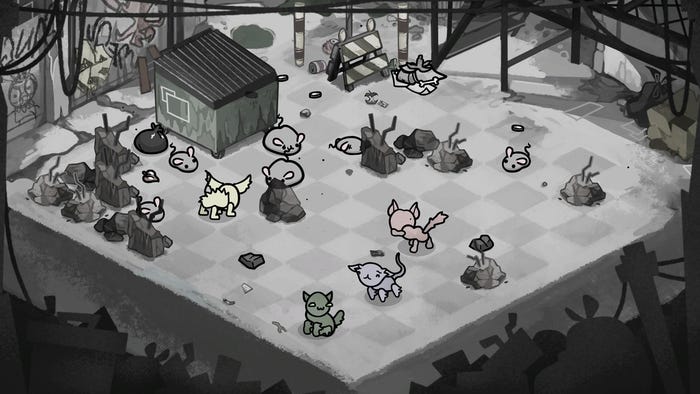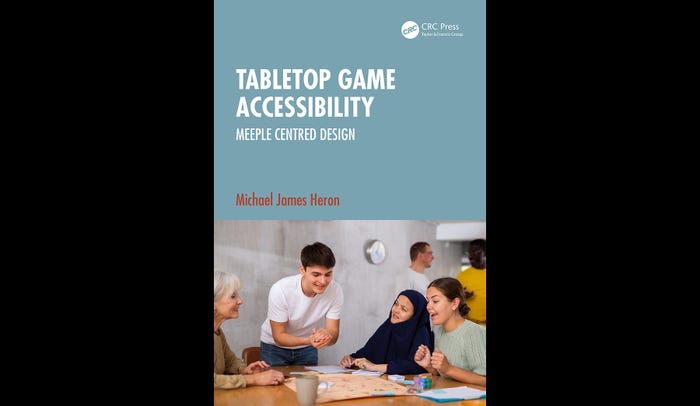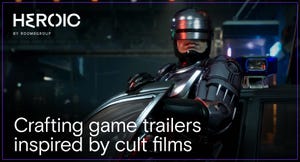Good and bad at all times: Adriel Wallick on jamming for a year
"The most immediate and quick lesson I learned is this: every game idea is too big. You need to pare down ideas to the smallest level."

Adriel Wallick, the former satellite engineer turned game dev and jam organizer, kicked off Practice 2018 with a talk about the rapid project development inherent to jamming. In introducing her, Professor Clara Fernandez-Vera described Wallick as "a true adventurer," praising the winding path that took her on a global journey -- from Lockheed Martin to Harmonix and Rock Band Blitz, to being a full time indie and leading game jams.
During her talk, Wallick focused on the lessons learned from a yearlong exercise in making games, with the idea that she would teach herself game design through sheer force of repetition.
Back in 2014, at the urging of her partner, fellow developer Rami Ismail, she began to work on a game a week; the core idea was that there was merit in making a game and pushing it out of the nest to practice techniques and exercise your creativity, rather than refining a single game for a year or more.
The rules were simple. Release a game every week on Sunday, vary your ideas, and write a postmortem. The best way to learn the core competencies of game design, she believes, is to simply do it over and over -- likening it to pottery techniques where repetition of skills leads to "going on autopilot."
"It sounds super obvious but it’s amazing how not-obvious it is a lot of the time," she explained.
Despite her commitment to the cause, Wallick noted that she didn’t turn any of her 52 games (which you can find here) into larger projects, and lamented the fact that she might’ve perpetuated crunch culture around herself during that intense year. "Every single game [I made during Game a Week] had all the checkboxes ticked off, but I’d never say any of them were truly finished. I never really learned how to finish a game," she said, revealing that she only considers three games she ever worked on to be properly finished: Rock Band Blitz (pictured below), Candescent, and Press X to be Okay.
"You have to show people how to make a game for real, not just prototyping," she observed, joking that she maybe should’ve tried "Polish and Production a Quarter." Even if there was value in the intensity of repetition, drilling in techniques and strategies, it still lacked scope for, say, solving a design problem. "If I had an idea and it didn’t work, I threw it out."

As with so much in this field, balance is essential, and that was a theme of this talk. Wallick regretted doing too much of one thing and not enough of its opposite, failing to quite hit that elusive happy medium. That was certainly true with the essential skill of scaling down one’s ambitions.
"The most immediate and quick lesson I learned is this: every game idea is too big. You need to pare down ideas to the smallest level," she explained. This comes with its own challenge, however, as minimalism is its own art.
"The most immediate and quick lesson I learned is this: every game idea is too big. You need to pare down ideas to the smallest level."
"I got really good at small game, abandon; small game, abandon. You don’t really practice making an actual game," continued Wallick, observing that there's a difference between a gimmick and a full game, and that the risk of paring down to a single mechanic meant the software became "a proof of concept for a mechanic with the conceit of a game around it."
"Put out your work. It can be a piece of unplayable crap but it shows you’re doing something and learning," she joked, as she talked about the earliest "unpolished garbage" she churned our during Game a Week, describing the first ten weeks as the absolute worst.
The most valuable process, she suggested, was opening herself up to criticism over those fifty-two weeks, where she became steadily more comfortable with soliciting and accepting critique, especially from other devs. This, she claimed, was the most valuable benefit of putting her games out into the world. It allowed her to get past the sense of her creations being "her babies" and embrace the collective process of learning.
"Even when you think you didn’t learn anything -- you did," she added, as she talked about the importance of both writing postmortems and re-reading them later down the line to remind yourself of lessons learned. Notably, there were six weeks where she didn’t make a game, yet still wrote postmortems about her ideas for that week.
That led to one of her most important revelations. "Think of how tired you are after one game jam, and multiply that by 52. Other than those six weeks I didn’t make a game, I was always working," she recalled, echoing a familiar refrain from the industry.

Uniquely, this was a private experience, rather than attached to the company, but the artificial boundaries of Game a Week were all but designed to emulate crunch. "I worked on nights, I worked on weekends, I worked on birthdays, I missed hangouts with friends. I don’t know when I got out of that hole, but it was probably a year before I could work on anything of my own again."
During the Q&A session she suggested that jam culture might be improved by a greater emphasis on those aspects of game design that jams’ rapidity might normally elide. "Polish Jam! Somebody should do that. You fix up an existing prototype. Or you take an old game from a graveyard of ideas and make a game out of that," she suggested, in response to a question about what such an event would look like, though it only served to highlight the "weird adventurous journey" that Game a Week was.
"Game a Week was good and bad at all times," she concluded, admitting that "you’re always your worst boss at all times" because you're forcing yourself to work independently. Even so, the exercise presented an invaluable opportunity for Wallick to learn how she worked best -- though, maybe it's sensible to take a few breaks along the way.
About the Author(s)
You May Also Like









.png?width=300&auto=webp&quality=80&disable=upscale)



